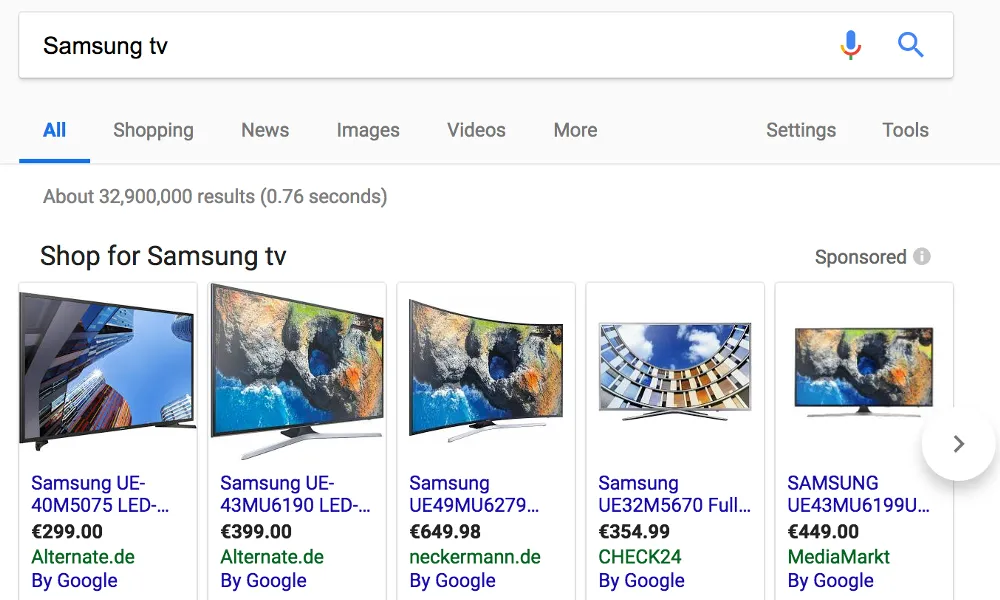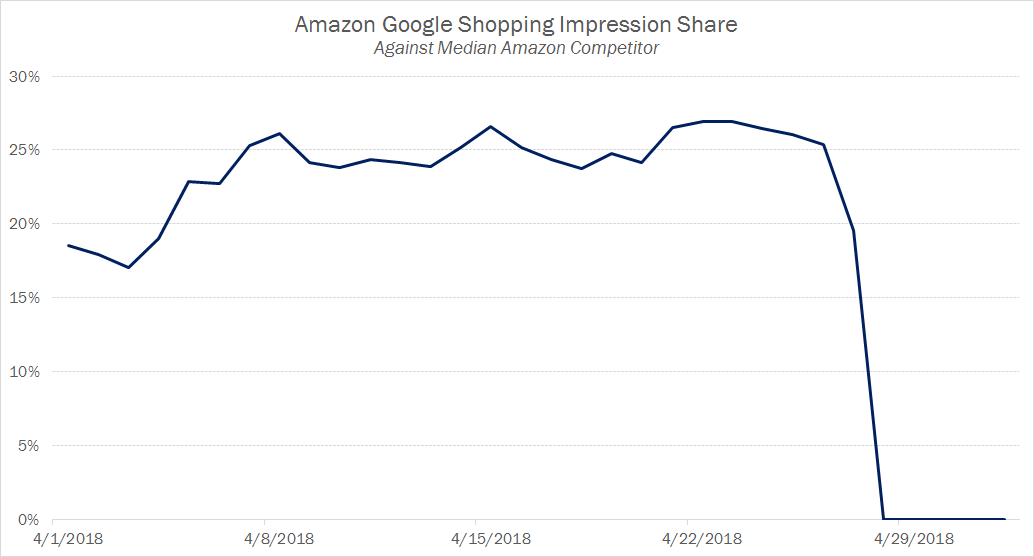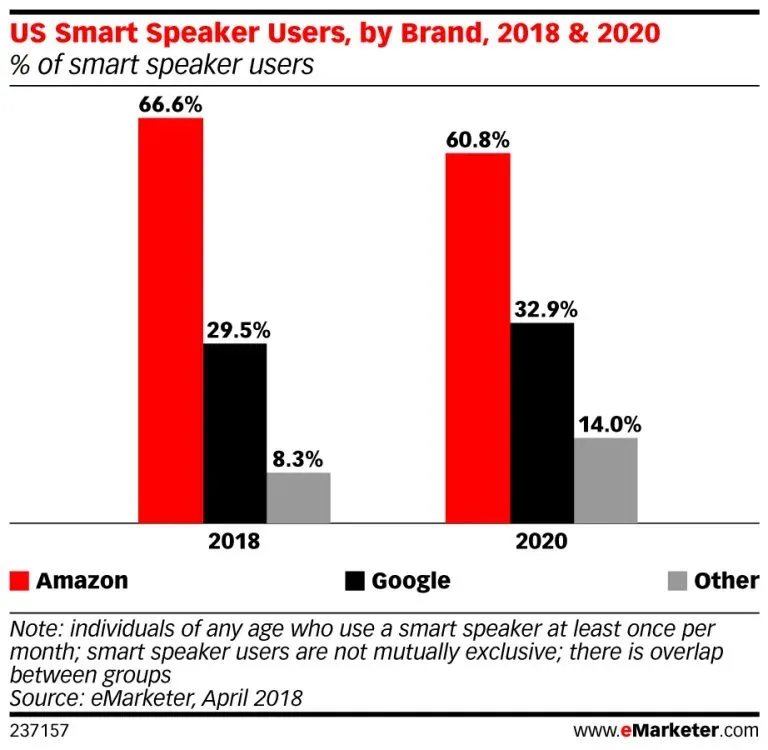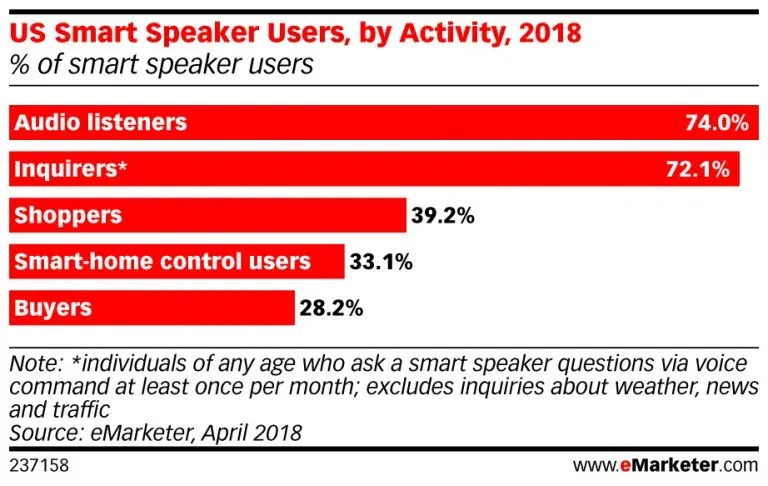
The competition between Amazon and Google is escalating with disputes and is similar to the Google-Microsoft ecosystem war. Google war with Microsoft with android. Now the war is Google-Amazon and the last move come from Amazon: pausing all ads on Google Shopping.
Back to last year, Google pulled YouTube out from Amazon because of lack of reciprocity. 4 months after, Amazon dropped all ads on Google Shopping, reported initially by Merkle. A loss for Google of around 50 million euros, Merkle estimates.
The full stop of ads on Google Shopping happened at the end of April. Merkle was able to detect the drop using the Impression share report of the Google’s Product Listing Ad (PLA). Here the graph shared by Merkle:

The dispute between Amazon and Google is based on lack of reciprocity. Amazon does not sell any Google products like Google Home. When users search for Google Home, Amazon is showing the Amazon Echo. Amazon is doing the same with Chromecast and all other Google products. On Google Cast, Prime video is also not available while is active on Apple TV. Since December last year, YouTube is also not available on any device of Amazon, like Amazon Fire TV.
Amazon and Google are competing in many areas; similar products (like Amazon translate) are being launched every year. Some of the areas in competition are cloud, machine learning, developer attention for projects, advertising on programmatic, payments, and personal assistant and smart speakers.
Google Home vs. Amazon Echo/Alexa
In the USA, Amazon has more than 50% of the market share on smart speakers. In 2018, eMarketer estimates that Amazon Echo/Alexa has a market share of 66.6%, however eMarketer forecasts this will drop to 60.08% in the next 2 years. Google has a market share of 29.5% and will increase to 32.9%. Amazon will loose market share mostly to other smart speaker providers.

In the US, there are over 50 million users using smart speakers this year. Most of the users use smart speakers for audio listening, inquires and smart-home controls, but around 30% are buying via smart speaker.


